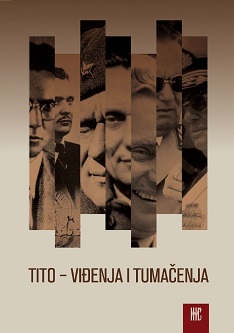Titov kult u Jugoslovenskoj narodnoj armiji
The Tito Cult in the Yugoslav People's Army
Author(s): Mihajlo Basara
Subject(s): Cultural history, History of ideas, Military history, Political history, Sociology of Culture, History of Communism, Sociology of Politics
Published by: Institut za noviju istoriju Srbije
Keywords: the Tito cult; Yugoslav People's Army; ideology; socialism;
Summary/Abstract: The paper discusses the ideological obstacles to the research of Tito's era, characteristics of the cult in the self-managing socialism and its special features in the Army, as well as characteristics and manifestations in the Yugoslav People's Army (YPA). The author concludes that Tito's course towards liberalization of socialism in the form of self-management, as well as the results achieved in the modernization of the country, reduced the leeway for a broader use of the cult as an ideological instrument, especially in comparison with the countries of the former Eastern Block. Simultaneously with that, the historical science was rearranged and Tito became the creator of the theory and practice of socialism in Yugoslavia. With the YPA personnel loyalty was secured through selection (participation in WWW, social background, ideological background of parents), Party control and planned and systematic indoctrination. Having been coupled with the process of training, including the Army into peacekeeping operations and military-industrial activities and also having been to a larger degree under the influence of self-management due to the concept of General People's Defense, the cult in YPA hadn't the typical traits of a rigid personality cult. The break-up of Yugoslavia proved that Tito's cult wasn't of long duration. It was replaced by the cult of the nation and its new leaders.
Book: Tito - Viđenja i tumačenja
- Page Range: 779-796
- Page Count: 18
- Publication Year: 2011
- Language: Serbian
- Content File-PDF

